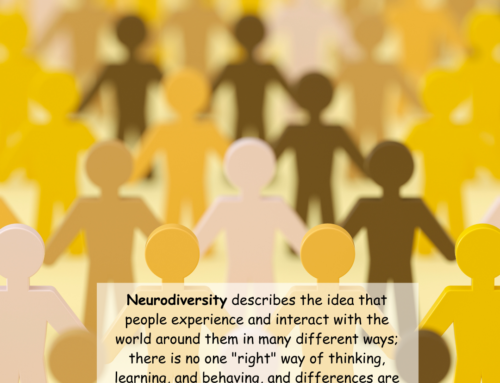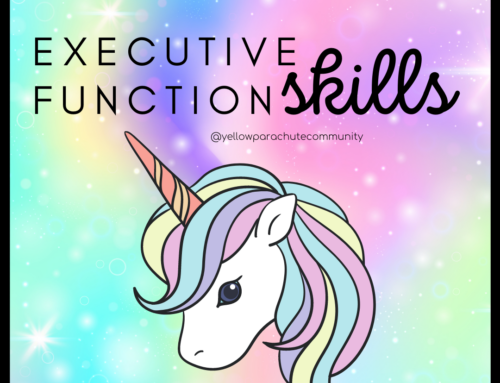It’s one of the more exasperating interview answers. You ask someone to name a workplace weakness and she says, “Well, shucks, I’m a bit of perfectionist” (cue eye roll).
These days, we see identifying as a “perfectionist” as a way to fake self-criticism while secretly patting yourself on the back. Because, after all, employers should see this “flaw” as an asset. “I’m a perfectionist” in business terms translates to: “I’m a productivity robot with sky-high standards, ready to pledge my life to making you money.” Corporate catnip.
But true perfectionism is destructive. Perfectionism doesn’t mean you hunger for excellence. Perfectionism means you fear, not only failure, but every stumble, every doubt, every embarrassment that might await you on the path to success. Perfectionism paralyzes you.
So know that as I make this confession, I promise I am not giving (or asking for) a single pat to my own back: My name is Cara, and I’m a recovering perfectionist.
Some of you may relate and empathize with the pain of perfectionism. Some of you may relate and reject the notion that perfectionism is a problem to be solved. Those of you who know me may just be thinking, “So that’s why Cara’s such a spazz…”
But whatever your degree of compassion, acceptance, or skepticism, please know that when I am trying to be perfect, I am not okay.
When I’m in the throes of perfectionism, I believe that if I’m pretty enough, skinny enough, strong enough, smart enough, kind enough, all the enoughs, I won’t get hurt. I believe that I need to be whole to be wholly loved. I gobble up approval points like Ms. Pacman, giving people the answers I think they want to hear, the me I think they want me to be, instead of the truth.
As a result, it can be hard for other people to understand the negative side of my perfectionism—even for those closest to me. My perfectionism makes me sweet and agreeable. My perfectionism makes me tolerant and forgiving. Until I’m not. And usually my family sees this snap.
How heartbreaking too, to realize that for as much kindness I gave to other people, I repaid myself in cruelty. For every word of praise I spoke to you, I subjected myself to hours of abuse, saying things to myself that I would never, ever say or think about another human being.
And I hid my fragility, and my anger in moments when others saw me as less-than-perfect.
It’s been six years since I truly saw my perfectionism for the negative force that it is. For me, as a person of faith, my epiphany arrived at the start of my first Bible Study Fellowship class. But you don’t have to be religious to benefit from a sense of wonder—to feel your smallness and your connectedness to the fabric of the universe. Wonder helps you stop looking at yourself so closely. Through my BSF class I realized that I am not the sum of my labors, that striving doesn’t make me more or less worthy of love.
Of course, there’s a difference between knowing you’re worthy of love and feeling it. That takes training, and sometimes, help. Try a lovingkindness meditation to practice self-compassion, battle your negative thoughts in a journal, or find a therapist who employs Cognitive Behavioral Therapy.
Like many people struggling with compulsive behavior, I relapse. I still have to make conscious choices every day, multiple times a day, to keep the perfectionism from taking over. But now I recognize it sooner and name it rather than following it down the rabbit hole.
And when I need more motivation to be kind to myself, I remember that we can’t give our kids what we don’t have. I don’t want my kids to inherit my shame. I don’t want them to ever feel that they will never be good enough. I want them to feel loved—and ultimately love and accept themselves—no matter what they do, or how well they do it.
You know those moments when you look at your child and think (most often when they’re sleeping), You are the most beautiful, amazing human being I have ever laid eyes on? And their past, present, and future stretches out before you like a beautiful, peaceful story, complete with happy endings and music and a photo montage? Do you do that for yourself? You should. Because when we seek out that peace and that hope for ourselves, we show them how to live it.
I’m not at “loving myself wholeheartedly” yet. But I’m leaning in and walking toward it for my own sake, as well as the sake of my family. In the words of feminist activist and author bell hooks :
“To begin by always thinking of love as an action rather than a feeling is one way in which anyone using the word in this manner automatically assumes accountability and responsibility.”
-Cara
Are you a perfectionist? How does your perfectionism shape your life? What tools do you use to manage it?
For more help with imperfection, check out The Gifts of Imperfection by Brené Brown







